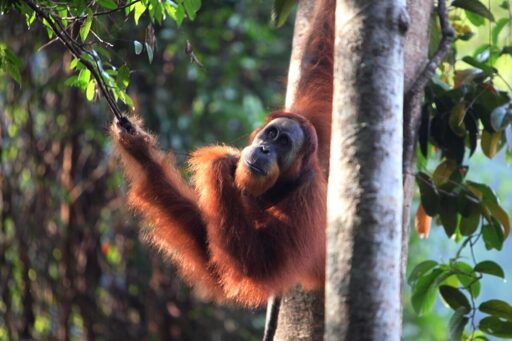When it comes to sleeping, few animals are as fastidious as orangutans. Each evening, as twilight approaches, the tree-dwelling great apes meticulously weave a cup-shaped nest out of branches, twigs and leaves, line it with comfortable soft foliage, and bed down for the night. The nest secures them high in the forest canopy and allows them to grab up to 12 or 13 hours of shut-eye per night. For more than a decade, researchers studying a group of Sumatran orangutans (Pongo abelii) in the forests of Indonesia’s Aceh province had observed individuals also taking daytime naps in more makeshift nests. They wondered whether the napping orangutans were catching up on poor sleep the previous night, in much the same way humans might flop down in an armchair or sofa for a quick power nap. In a new study published in Current Biology, the researchers show that the orangutans do indeed compensate for a poor night’s sleep by napping more the following day. They found the shorter an individual’s sleep period overnight, the longer its cumulative nap period the next day. “We were always wondering over many years, is this really what is happening? Are they really napping more when they had a shorter night’s sleep?” Caroline Schuppli, study co-author and group leader at the Max Planck Institute of Animal Behavior at the University of Konstanz in Germany, told Mongabay in an interview. “To see it materialize in the data was really nice.” The findings are based on 14 years of…This article was originally published on Mongabay
From Conservation news via this RSS feed


